“David Ellefson told me, ‘You got the gig. Oh and by the way, Dave told me to tell you that you played many of the wrong guitar parts’”: Marty Friedman tells the inside story of his auditions with Ozzy Osbourne and Madonna – and landing the Megadeth gig
In this exclusive excerpt from his new autobiography, Dreaming Japanese, the guitarist looks back at his early years, when he was broke and forced to choose between eating or auditioning
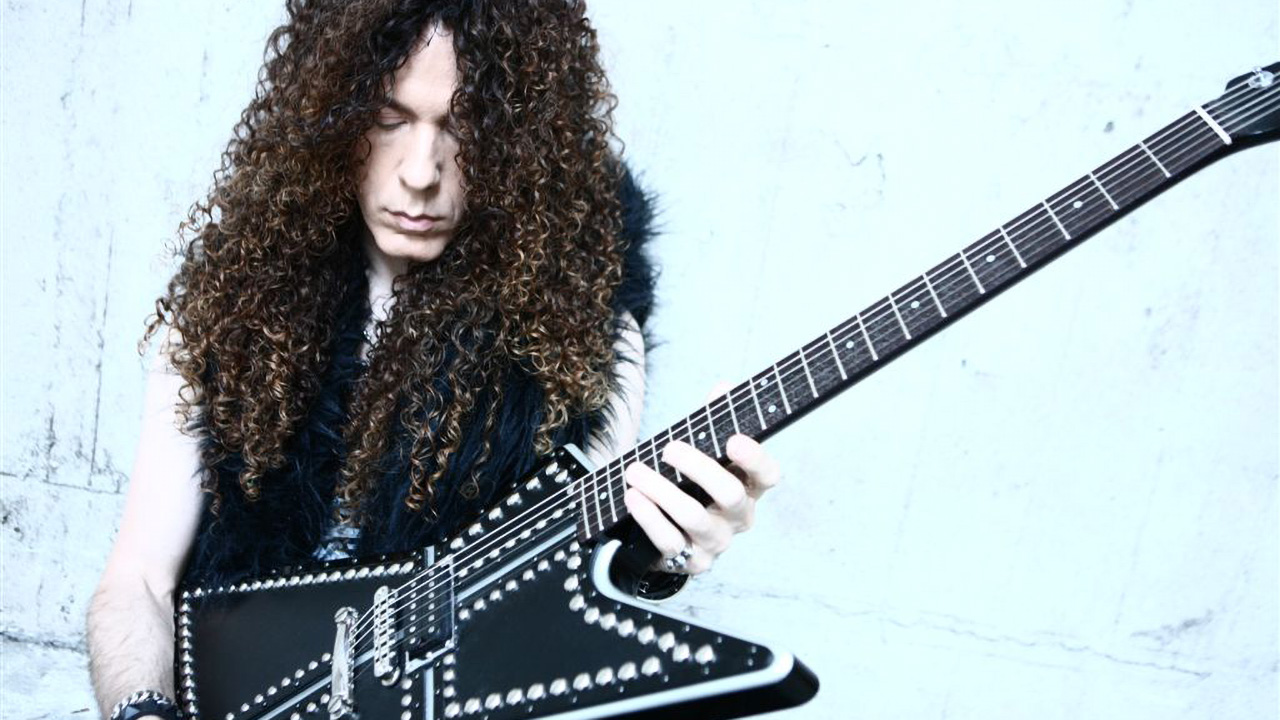
In this exclusive excerpt from Dreaming Japanese, Marty Friedman’s new autobiography (co-written by frequent GW contributor Jon Wiederhorn), the ace guitarist details his auditions with Ozzy, Madonna and Megadeth.
Take No Prisoners
The first shot I had at joining a big act happened while I was living in San Francisco, sometime in the late ’80s. Ozzy Osbourne was looking for a guitarist to replace Jake E. Lee, and someone recommended me to his wife and manager, Sharon. She called and offered to fly me to Los Angeles for an audition. I was thrilled that someone in Ozzy’s camp had even heard of me and was willing to pay my airfare to hear me play.
As great as they are, Ozzy’s and Black Sabbath’s songs are way easier to play than anything by [my band] Cacophony. I had no problem learning them, and then I over-practiced until I was so confident I could have played the songs fluidly in the middle of an earthquake.
I was looking forward to plugging in and showing Ozzy my chops, but when I got to the studio, neither Ozzy nor Sharon was anywhere in sight. Only bassist Phil Soussan and drummer Randy Castillo were there, which kind of bummed me out. But they were all set up and ready to play, and I was raring to go. I introduced myself and told them how stoked I was to audition.
Phil grunted. Randy shrugged. “Are we going to do this?” Randy asked as if he had somewhere to be in 30 minutes. From their bored expressions and the dozens of manilla envelopes and cassettes lying around, I got the feeling that they had already auditioned tons of guitarists.
I played four or five songs with them and didn’t miss a note. The musical vibe was great, natural, and relaxed, and we sounded totally major league. And while Phil and Randy were polite and pleasant, it seemed like they would rather be sitting in a proctologist waiting room than auditioning me.
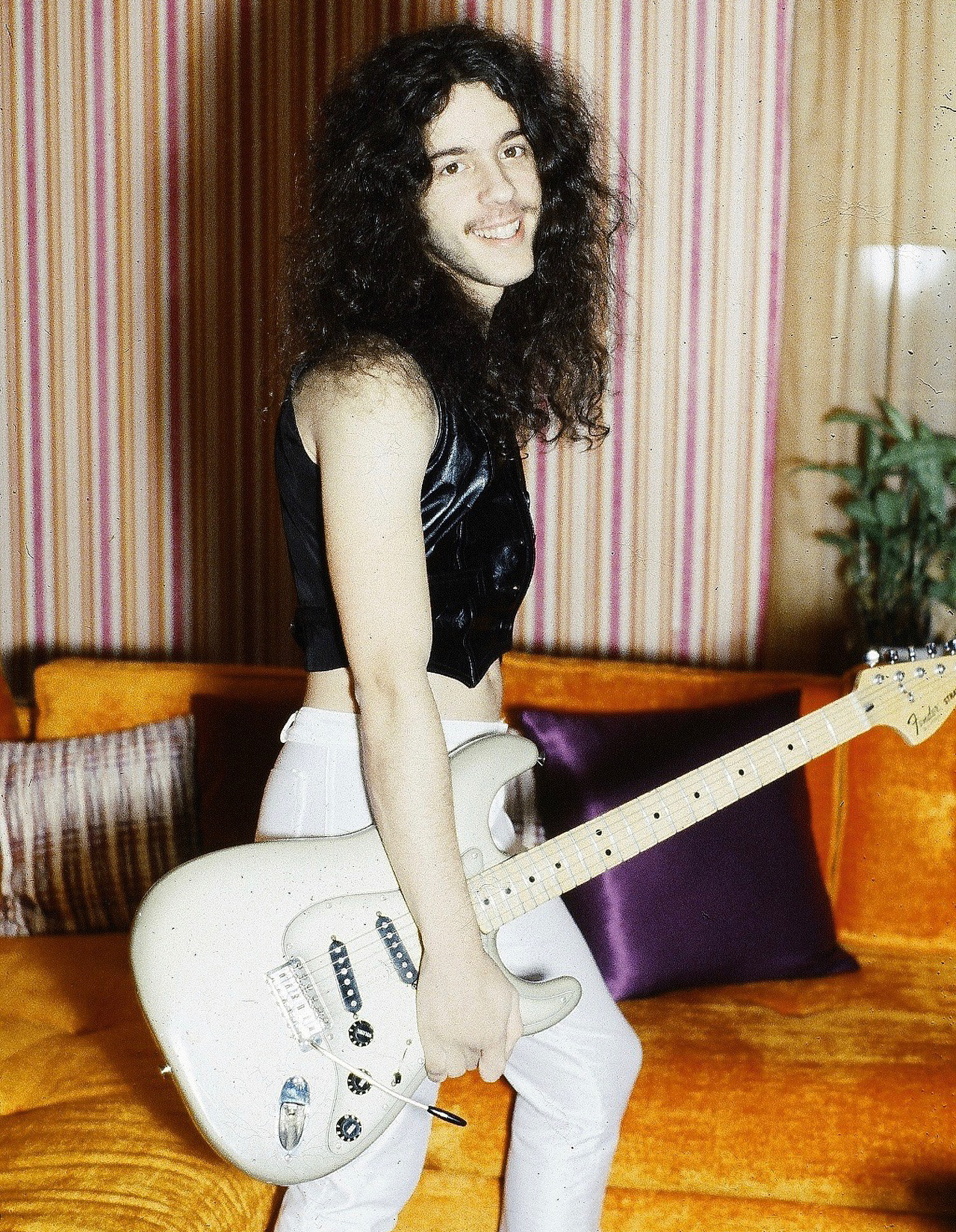
When I got back to San Francisco, I eagerly waited to hear back from Ozzy’s camp. They never called. A couple years later, I learned that Zakk Wylde had gotten the gig. He was the perfect choice, a highly skilled player, who probably fit in with the guys better than I did.
Get The Pick Newsletter
All the latest guitar news, interviews, lessons, reviews, deals and more, direct to your inbox!
I don’t think anything about my playing got me crossed off the list. It was all about the magic chemistry among the band members. Playing well is a given. Great players are a dime a dozen. It is the stuff on top that lands you the gigs. Ozzy’s guys were wearing Sunset Strip regalia even at a rehearsal, and I wasn’t even sporting a shirt with a band logo. They had a casual attitude about the music and plowed through it, yet I paid attention to every detail.
Being a pop singer, I didn’t think Madonna would hire a metal player like me, but pop music had started to feature guitar solos, so I thought maybe I had a tiny shot
Sometimes I wonder if Phil, Randy, and I had immediately hit it off, joked around, went out and picked up some tarted-up girls, and partied ourselves sick after the audition, whether tales of our outrageous chemistry might have gotten back to the boss man and convinced him that I was “one of them.” Either way, I think Zakk did a better job with the gig than I would have.
My next big audition came about a year later when I found out Madonna needed a guitarist. Being a pop singer, I didn’t think she would hire a metal player like me, but pop music had started to feature guitar solos, so I thought maybe I had a tiny shot.
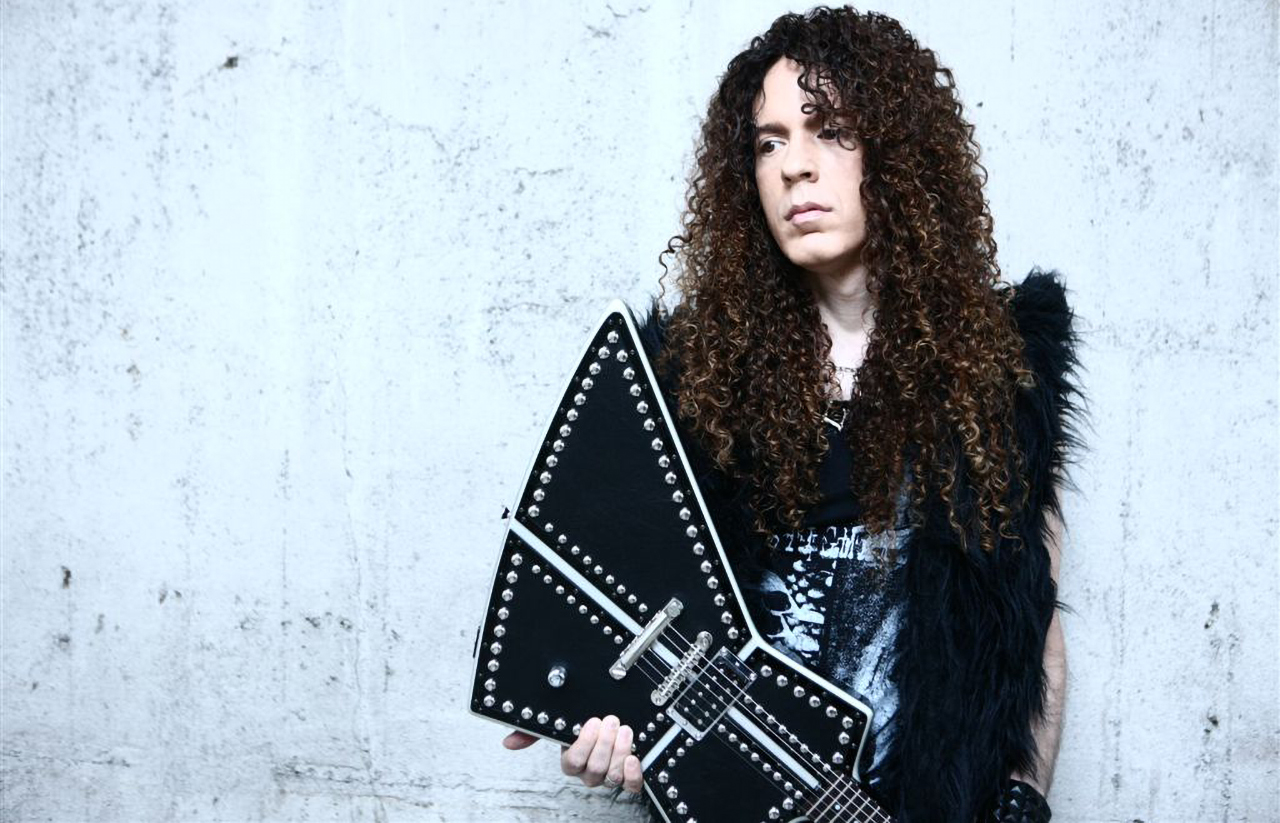
It was an open-call audition, so I had no idea what to prepare. I decided to learn a bunch of Madonna’s obscure songs since I could easily improvise my way through any of her hits, even if I didn’t prepare. I really wanted the gig, not because I’m a huge Madonna fan, but because my resources were wearing dangerously thin. I was broke and getting desperate.
I lived a couple blocks from Guitar Institute of Technology (GIT), which occasionally hired me to teach seminars and masterclasses. I was grateful for the work, but many of the students also lived in my dilapidated rat nest apartment building, so whenever I finished a seminar, I had to take the walk of shame back to my fleabag room with a bunch of starstruck guitar students following me. I felt like the Pied Piper in the slums of Hollywood.
For a young, aspiring musician, releasing an album on any label is a dream come true, so when these kids came in contact with someone like me, who had released a few records, received solid press, and toured the world, they assumed I was a rich rock star. Walking back home with them to the same squalid living conditions they were subject to was both demoralizing and embarrassing. I’m sure they were surprised and disillusioned.
Just a couple days before my Madonna audition, I received an interesting call from my good friend, heavy metal insider Bob Nalbandian. He told me Megadeth had been auditioning guitarists for a long time to no avail, and their manager, Ron Lafitte, had asked Bob if he could recommend someone. Bob asked me if I was interested. I went from sitting around fanning my balls to suddenly having auditions for Madonna and Megadeth in the same week.
I was not that familiar with Megadeth’s music, but I knew I liked it a hell of a lot more than I liked Madonna’s, which, to be fair, I also liked. And I was a more natural fit for Megadeth. I looked the part, and we shared many of the same influences.
When Ron Laffite found out I was interested in auditioning, he called me and told me to learn five songs: Wake Up Dead, In My Darkest Hour, The Conjuring, Hook in Mouth, and a cover of Alice Cooper’s No More Mr. Nice Guy.
I bought a couple Megadeth cassettes at a used record shop and learned the tracks note for note. I was confident. I was good to go. Then, Megadeth’s management called again and told me to learn another few songs. I worked on those as well. More calls came. “Hey, Marty. Dave wants you to learn a couple more.”
I really wanted the gig, not because I’m a huge Madonna fan, but because my resources were wearing dangerously thin
This kept happening until it got to the point that they were asking me to learn songs from the debut album, Killing Is My Business… and Business Is Good!, which was on an indie label and hard to find. I couldn’t track down a used copy and eventually found a new one, but I didn’t have the $12.99 that it cost unless I went without eating for the day. My stomach incessantly grumbled as I tried to master the last few of the 13 or so songs that I prepared for the audition.
Unlike Madonna songs, Megadeth songs are intricate and tricky and feature lots of rhythm and tempo changes, and even more solos than Ozzy tracks. I wasn’t familiar with the band members and their playing styles, so I had no idea which solos were played by Dave Mustaine, and which were handled by the guitarist I hoped to replace.
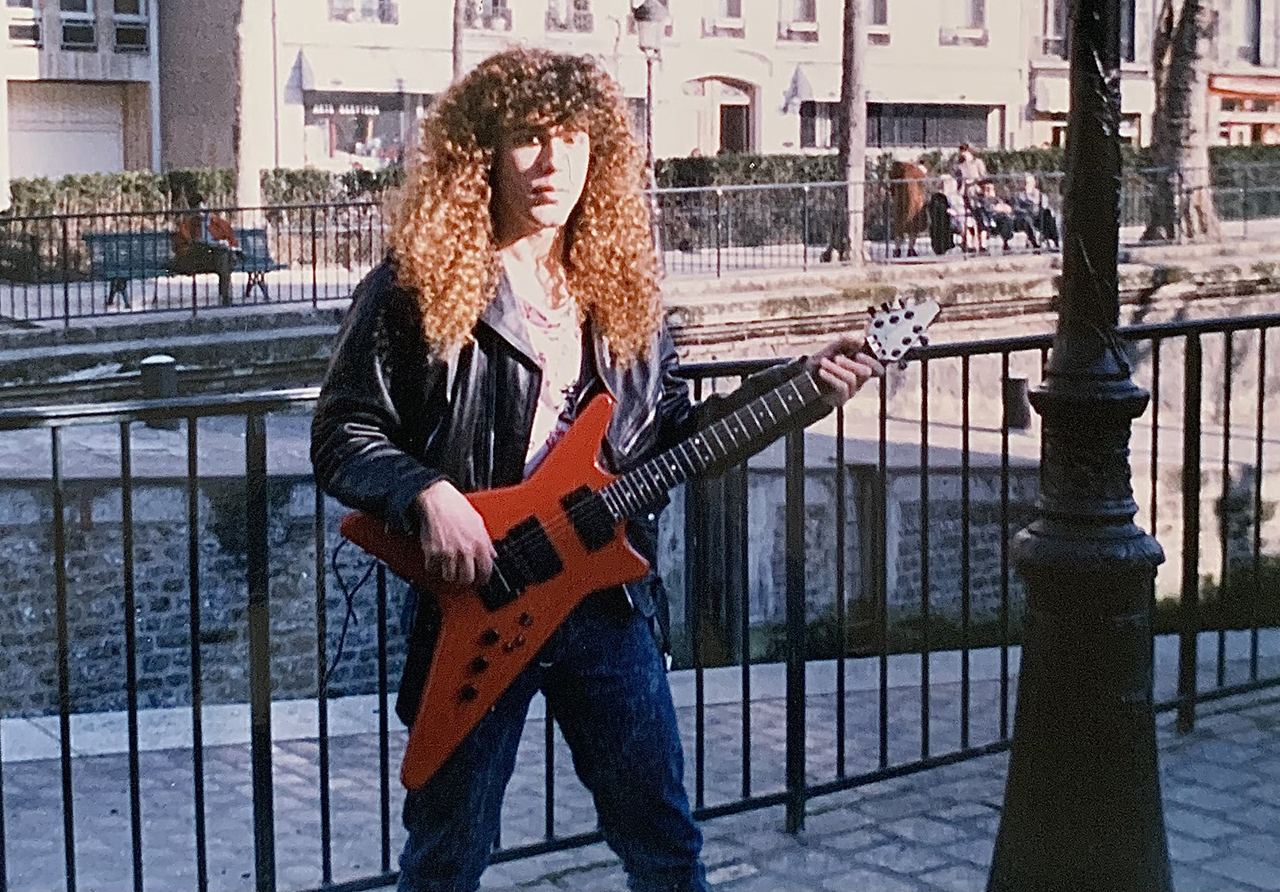
Up to that point, the mixes on Megadeth albums were somewhat muddy, and the guitars often lacked separation. I had no choice but to try to thoroughly learn every guitar part so I could rip through anything I might be asked to play.
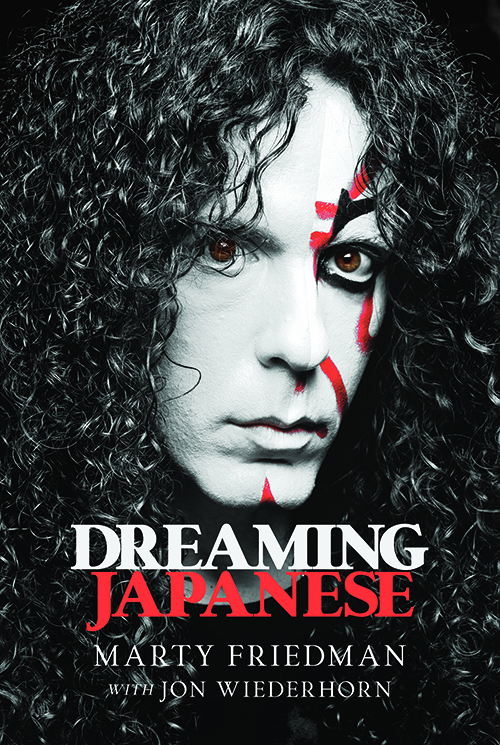
Mainly though, I was just happy for the opportunity to audition for such a cool band, so I dug into one song after another and learned them backwards and forwards. Learning all that material was exhausting, but I knew I could handle the playing part.
Megadeth was like [my band] Hawaii on steroids. I was much more concerned about vibing with the guys. All I knew about Megadeth was that Dave Mustaine was an original member of Metallica, and I really liked Metallica’s No Life ’Til Leather demo that he played on before starting Megadeth.
When I lived in Hawaii, I got that primitive recording through underground tape trading and played it constantly. I’d pop the cassette in my Walkman when I went jogging through the lush, scenic Portlock area of Hawaii Kai, which overlooked the sparkling ocean. The demo was the ultimate contrast to the very un-metal Hawaiian vistas.
Listening to it made me feel like I had maintained my punk and metal roots. I had no idea that Dave was unceremoniously kicked out of Metallica just before they were signed and started on the path to becoming the biggest heavy metal group of all time.
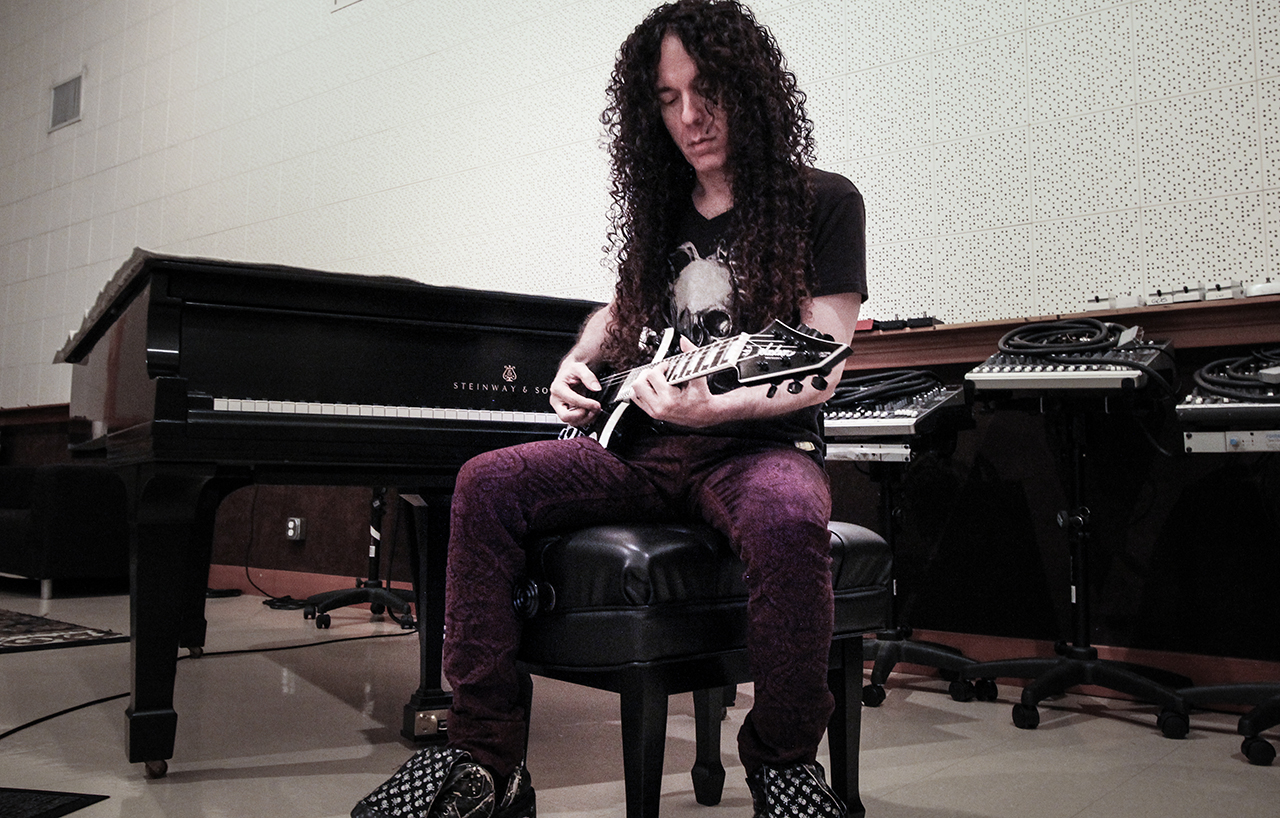
I feared a repeat of the Ozzy situation since, in established bands, the chemistry between members is far more important than actual playing ability. Mastering the music is a given, as it should be, but it’s just a part of what it takes to join a band, which is like an exclusive club, or even a family.
The chemistry between members involves intangibles like childhood background, personality, and common sense in an extremely uncommon occupation. These are elements that are impossible to prepare for.
I knew I had a better shot of landing the Megadeth job than the Madonna, or Ozzy gigs. But I still wasn’t sure what to expect at the audition. Fortunately, what I lacked in familiarity I made up for in practical maneuvering. In what I must humbly admit was a stroke of genius, or a rare moment of common sense, I hired my good friend Tony DeLeonardo to tech for me.
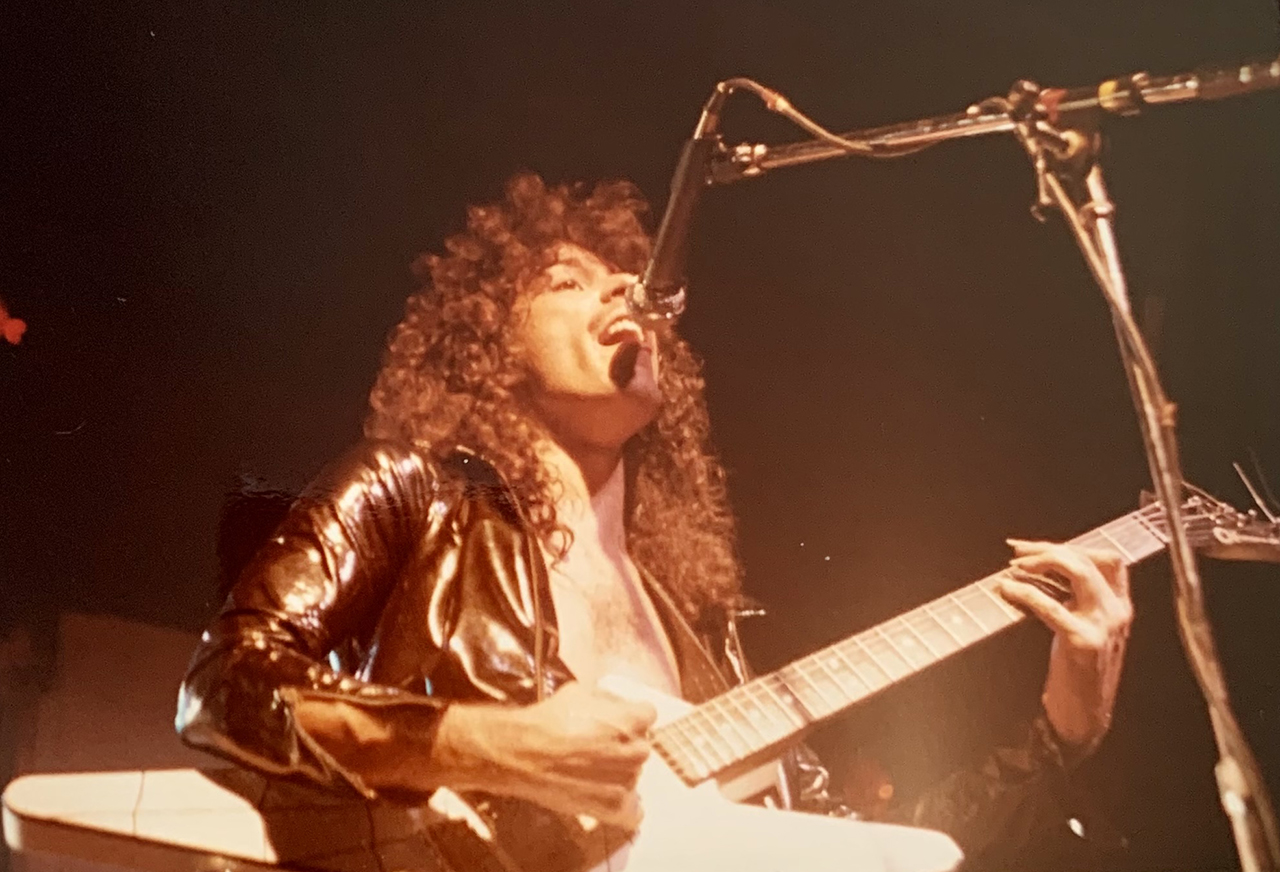
Tony and I were already good friends when he single-handedly took on all crew duties in Maryland for my old band Hawaii. Tony was now an in-demand tech in L.A. and had even done Zakk’s tours with Ozzy.
I have always had a complete lack of interest in anything mechanical. I was never a gear guy. Not back then, not now. The thought of setting up the amps and making sure everything was running correctly sent chills through my brain.
‘Oh and by the way, Dave told me to tell you that you played many of the wrong guitar parts.’ My heart sank into my high-tops
I just knew I wouldn’t look cool humping gear, plugging it in, and setting the knobs to the right sound. I am not proud to say that to this day I don’t have the slightest idea how to adjust the length of a guitar strap or roll up a guitar cable.
When I hired Tony for 65 dollars, I was living on 99-cent bags of lollipops and white rice with La Yu chili oil, so that money, a bargain for a pro tech, was extremely hard to part with. But something told me I had to do it, and I’m glad I listened to that little voice.
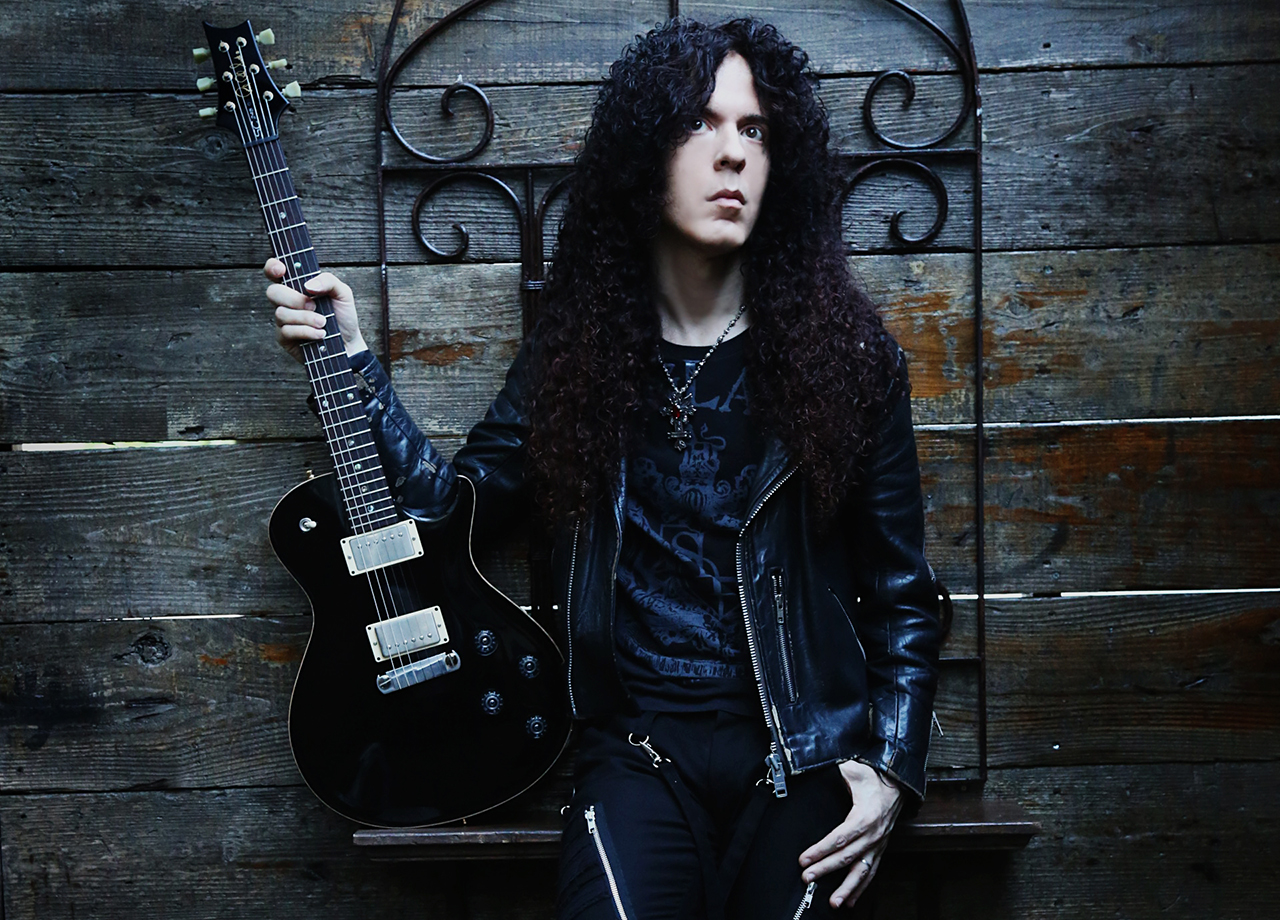
Tony got technical details from Megadeth’s crew, carted my gear into the audition like a boss, made sure my guitar was properly strung, intonated, and tuned, got a great sound from the amp in no time, and strapped the guitar on me when it was time to play.
Before I hit note one, I looked like a pro. I’m sure this made a good impression, especially compared to how lame it would have looked had I been fiddling with knobs on the amps and schlepping in all my heavy equipment.
After meeting all the band members – the serious-faced ringleader Dave Mustaine, diplomatic bassist Dave Ellefson, and loose-cannon drummer Nick Menza – Mustaine called out, “Wake Up Dead.” Nick did a four count, and we dove in.
Right away, the band gelled. We sounded like a unit already. I was so locked into this heavy groove that I hardly noticed there was a massive old-school video camera on a tripod right up in my face.
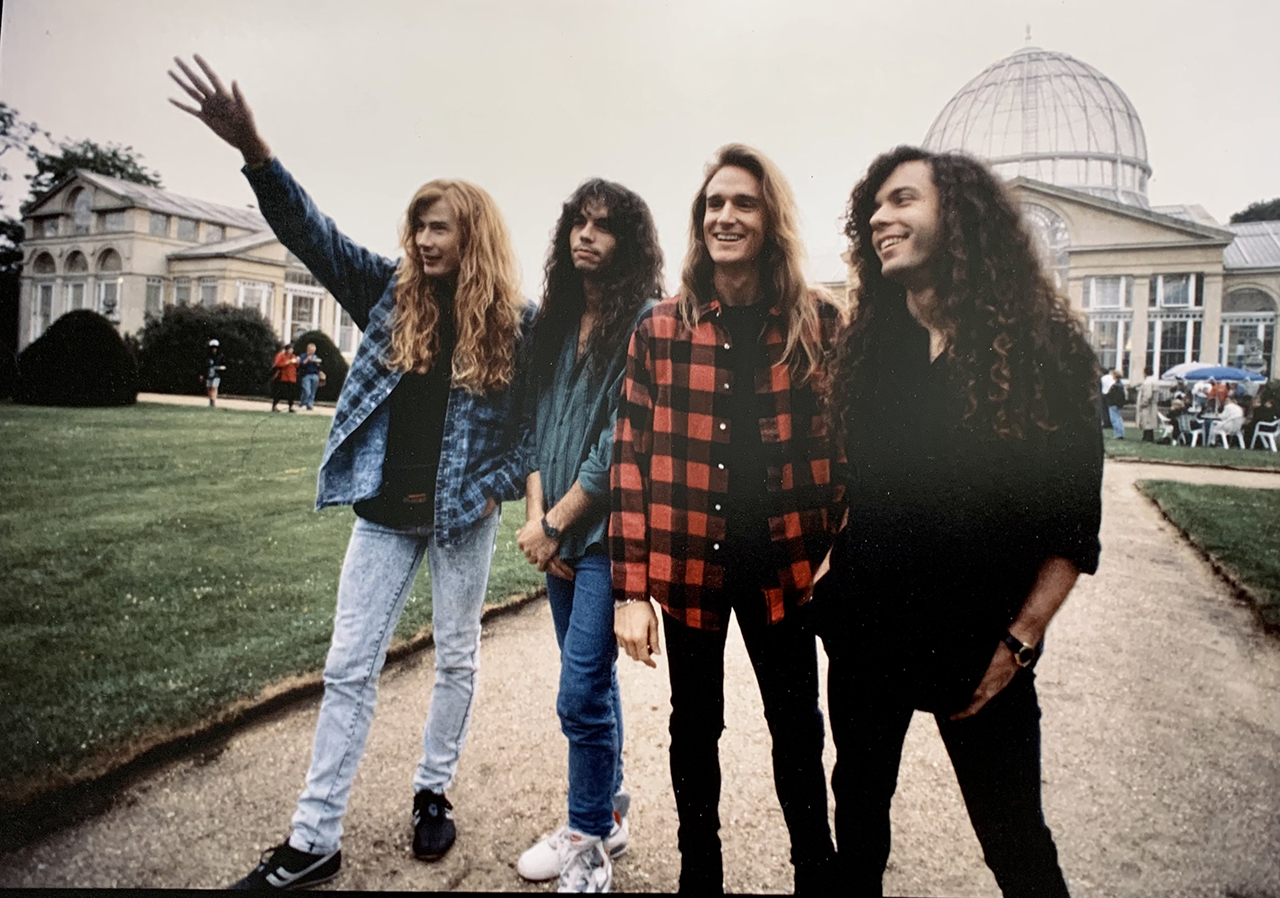
“Okay, that’ll do it for now,” Mustaine said as he put down his guitar. I asked if we would play No More Mr. Nice Guy, and he said he hated that song. The rest of the band joked about not liking it either. I remember thinking, “So why did you ask me to learn it?”
We wound up playing only the first batch of songs that I was asked to learn. Having auditioned numerous musicians for my various projects, I’ve realized that countless factors go into what you ask people to play when they try out.
So, having to learn an ever-growing laundry list of songs for the Megadeth audition made a lot more sense to me a decade-plus after the fact, but at the time I was kind of miffed.
“Stick around, man. Don’t go too far away,” Mustaine said, then walked off.
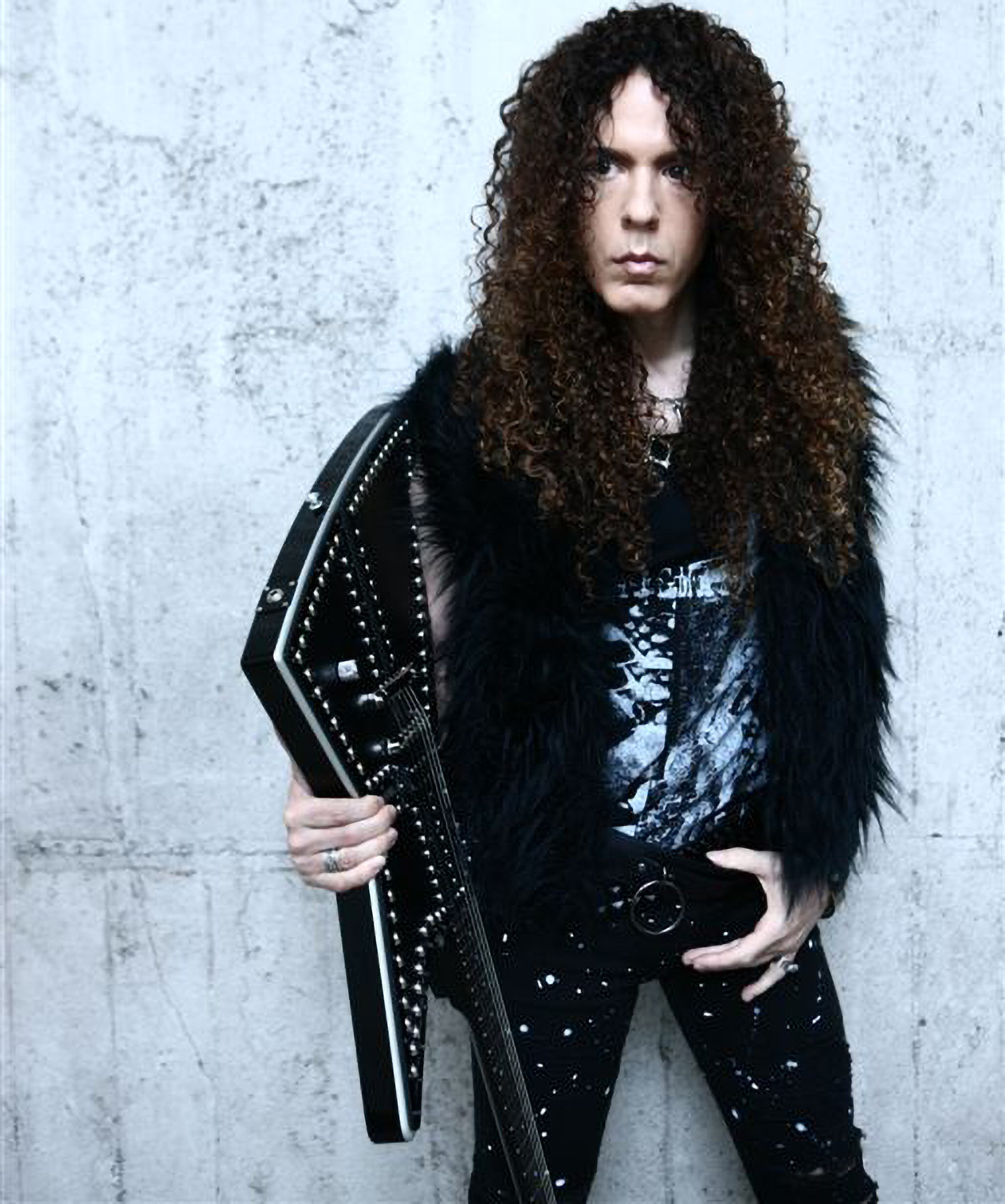
David Ellefson came back and told me, “I think that means you probably got the gig. Good going, man.”
I was elated but kept my cool. “Oh and by the way, Dave told me to tell you that you played many of the wrong guitar parts.”
My heart sank into my high-tops. “Hey, I wouldn’t worry about it too much,” he laughed. “You’re good. We can tell you know your shit.”
- This is an excerpt from Dreaming Japanese by Marty Friedman with Jon Wiederhorn (Permuted Press; December 2024).
“His songs are timeless, you can’t tell if they were written in the 1400s or now”: Michael Hurley, guitarist and singer/songwriter known as the ‘Godfather of freak folk,’ dies at 83
“The future is pretty bright”: Norman's Rare Guitars has unearthed another future blues great – and the 15-year-old guitar star has already jammed with Michael Lemmo









